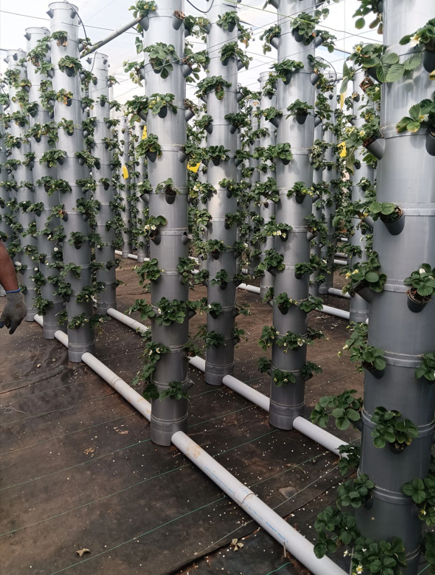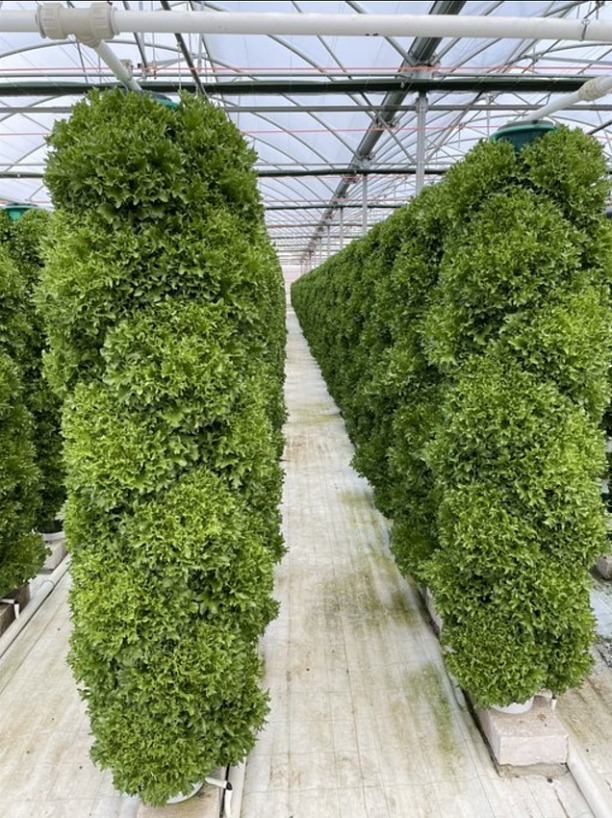Risks to VertiGenix's Business
While VertiGenix presents a compelling business model with clear potential for growth, there are several risks that could impact the company's success. These risks include factors related to technology adoption, market acceptance, regulatory challenges, and competition. Below is an in-depth look at some of the key risks and their potential impact:
1. Technology Adoption
Risk: The adoption of aeroponic farming technology could face resistance fr om traditional farmers who are accustomed to conventional farming practices. Additionally, the technology is relatively new and may require time and investment to prove its reliability and efficiency in the Southern African context.
Impact: If farmers and agricultural organizations are reluctant to embrace new farming methods, VertiGenix may struggle to expand its market and scale its operations as anticipated. Furthermore, technical difficulties or unforeseen maintenance issues with the aeroponic and hydroponic systems could undermine operational efficiency.
Mitigation: VertiGenix can mitigate this risk by offering robust training programs, establishing demonstration farms to showcase successful implementation, and partnering with agricultural organizations to facilitate adoption.
2. Market Acceptance
Risk: While there is increasing interest in sustainable and healthy living, consumer acceptance of aeroponically grown produce may still be uncertain, especially in regions wh ere traditional farming methods are deeply ingrained. Educating consumers on the benefits of aeroponic farming, such as its environmental and health advantages, could prove challenging.
Impact: Without widespread consumer acceptance, VertiGenix could face challenges in securing a strong market presence, particularly if consumers perceive aeroponically grown produce as niche or unfamiliar.
Mitigation: VertiGenix can focus on consumer education through marketing campaigns, local community engagement, and strategic partnerships with retailers and food service providers. Demonstrating the superior quality and sustainability of the produce can help build trust and brand loyalty.
3. Regulatory and Compliance Challenges
Risk: The introduction of new technologies, especially in the agricultural sector, may encounter regulatory hurdles related to food safety, environmental standards, and the use of greenhouse technologies. In addition, regulations related to water usage and the sustainability of farming methods may vary across regions.
Impact: Delays or compliance issues with regulatory bodies could result in additional costs or operational delays, potentially impacting the timeline for VertiGenix’s expansion and profitability.
Mitigation: VertiGenix should stay proactive in understanding and complying with all relevant regulations. This includes working closely with regulatory agencies and staying updated on local, national, and international standards for sustainable agriculture. Having a dedicated legal and compliance team can help address any regulatory concerns promptly.
4. Capital Intensity
Risk: Establishing aeroponic farms and acquiring the required technology and greenhouse infrastructure is capital intensive. VertiGenix’s business model relies on significant upfront investment, and delays in securing funding or unexpected cost overruns could strain cash flow and hinder growth.
Impact: If the company faces difficulties in raising the required R16 million in funding or experiences unforeseen costs, it may struggle to execute its expansion plans. This could slow growth or limit its ability to scale operations to meet increasing demand.
Mitigation: VertiGenix should explore diverse funding sources, including grants, impact investors, and partnerships with established agricultural entities. Additionally, careful financial planning, cost management, and a focus on phased rollouts can help manage capital expenditures effectively.
5. Competitive Behavior
Risk: As VertiGenix becomes more successful, competitors may enter the market with similar technologies or alternative farming solutions. Larger, established agricultural companies may also pivot towards sustainable practices, increasing competition.
Impact: If competitors successfully replicate VertiGenix’s aeroponic farming methods or introduce more cost-effective alternatives, VertiGenix could lose its competitive edge. Larger companies with greater resources could also pose a significant threat.
Mitigation: VertiGenix can maintain its competitive edge by continuously innovating and enhancing its technology, securing exclusive distribution partnerships, and expanding its training and consultancy services. Building strong relationships with customers, local farmers, and government entities can create barriers to entry for competitors.
6. Economic and Crisis Factors
Risk: External factors, such as economic recessions, global supply chain disruptions, or natural disasters, could adversely affect VertiGenix’s operations. A global crisis or local economic downturn may reduce consumer spending or disrupt supply chains for farming materials and technology.
Impact: These external factors could affect VertiGenix's ability to meet sales targets, maintain consistent operations, or access necessary resources, which could slow growth or lead to financial losses.
Mitigation: VertiGenix should consider diversifying its supply chain, creating contingency plans, and exploring alternative revenue streams (e.g., carbon credits, training services) that could provide stability during economic or supply chain disruptions.
7. Technological Disruption
Risk: The agricultural industry is rapidly evolving, and new technologies or farming methods could emerge that may render VertiGenix's current solutions less relevant or obsolete.
Impact: If new technologies are developed that outperform or provide a more cost-effective solution than aeroponics, VertiGenix could lose its technological edge, reducing market demand for its products and services.
Mitigation: VertiGenix should invest in research and development (R&D) to stay ahead of technological trends, continually improve its systems, and adopt complementary innovations. Collaboration with technology partners and active participation in the agri-tech community can also help the company stay on the cutting edge.
Conclusion:
While VertiGenix has a strong business model with significant potential, several risks could challenge its success. By carefully managing these risks—through proactive technology adoption, market education, regulatory compliance, diversified funding, and innovation—VertiGenix can position itself as a leader in sustainable agriculture and maintain its competitive edge over the long term. Addressing these risks will be crucial to achieving its vision of changing the future of agriculture through sustainable and innovative farming practices.






